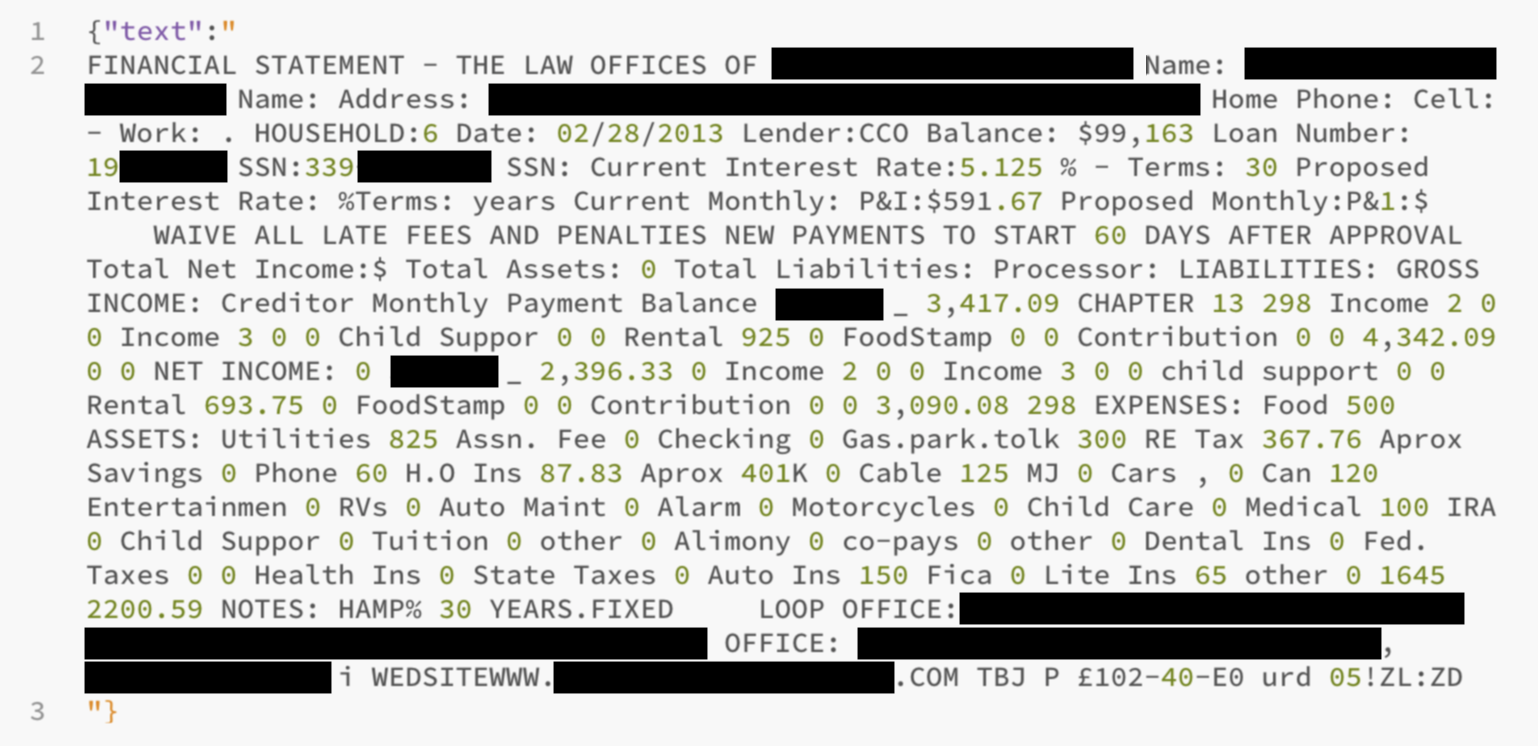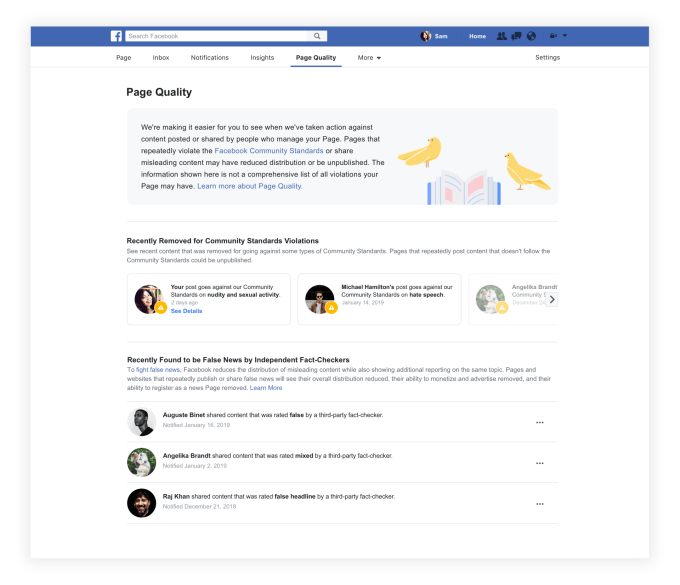A trove of more than 24 million financial and banking documents, representing tens of thousands of loans and mortgages from some of the biggest banks in the U.S., has been found online after a server security lapse.
The server, running an Elasticsearch database, had more than a decade’s worth of data, containing loan and mortgage agreements, repayment schedules and other highly sensitive financial and tax documents that reveal an intimate insight into a person’s financial life.
But it wasn’t protected with a password, allowing anyone to access and read the massive cache of documents.
It’s believed that the database was only exposed for two weeks — but long enough for independent security researcher Bob Diachenko to find the data. At first glance, it wasn’t immediately known who owned the data. After we inquired with several banks whose customers information was found on the server, the database was shut down on January 15.
With help from TechCrunch, the leak was traced back to Ascension, a data and analytics company for the financial industry, based in Fort Worth, Texas. The company provides data analysis and portfolio valuations. Among its services, the Ascension converts paper documents and handwritten notes into computer-readable files — known as OCR.
It’s that bank of converted documents that was exposed, Diachenko said in his own write-up.
Sandy Campbell, general counsel at Ascension’s parent company, Rocktop Partners, which owns more than 46,000 loans worth $4.4 billion, confirmed the security incident to TechCrunch.
“On January 15, this vendor learned of a server configuration error that may have led to exposure of some mortgage-related documents,” he said in a statement. “The vendor immediately shut down the server in question, and we are working with third-party forensics experts to investigate the situation. We are also in regular contact with law enforcement investigators and technology partners as this investigation proceeds.”
An unspecified portion of the loans were shared with the contractor for analysis, the statement added, but couldn’t immediately confirm how many loan documents were exposed.
In a phone call, Campbell confirmed that the company will inform all affected customers, and report the incident to state regulators under data breach notification laws.
From our review, it was clear that the documents pertain to loans and mortgages and other correspondence from several of the major financial and lending institutions dating as far back as 2008, if not longer, including CitiFinancial, a now-defunct lending finance arm of Citigroup, files from HSBC Life Insurance, Wells Fargo, CapitalOne and some U.S. federal departments, including the Department of Housing and Urban Development.
Some of the companies have long been defunct, after selling their mortgage divisions and assets to other companies.
Though not all files contained the highly sensitive and personal data points, we found: names, addresses, birth dates, Social Security numbers and bank and checking account numbers, as well as details of loan agreements that include sensitive financial information, such as why the person is requesting the loan.
Some of the documents also note if a person has filed for bankruptcy and tax documents, including annual W-2 tax forms, which are targets for scammers to claim false refunds.

One record, picked at random and redacted, reveals a loan agreement for an individual, including personal information such as the loan amount, name, address and Social Security number (Image: TechCrunch)
But the database stored documents in a random order, and were not easily followable or presented in an easy to read or formatted way, making it difficult to follow from one document to another, said Diachenko.
We verified the authenticity of data by checking a portion of names in the database with public records.
“These documents contained highly sensitive data, such as Social Security numbers, names, phones, addresses, credit history and other details which are usually part of a mortgage or credit report,” Diachenko told TechCrunch. “This information would be a gold mine for cyber criminals who would have everything they need to steal identities, file false tax returns, get loans or credit cards.”
Although the documents originate from these financiers, one bank — Citi, which helped to secure the data — said it had no current relationship with the company.
“Citi recently became aware that a third party, with no connection to Citi, was storing certain mortgage origination and modification documents in an unsecure online environment,” said a Citi spokesperson. “These documents contained information about current or former Citi customers, as well as customers from other financial institutions. Citi notified law enforcement, initiated a thorough forensic investigation and worked quickly to ensure the information could no longer be publicly accessed.”
Citi confirmed that “third party is a vendor to a company that had purchased the loans and we have found no evidence that Citi’s systems were compromised.”
The bank added that it’s working to identify potentially affected customers.
Dozens of other companies are affected, including smaller regional banks and larger multinationals.
A Wells Fargo spokesperson said the data was obtained by Ascension from other entities that purchased Wells Fargo mortgages. When reached, neither HSBC nor CapitalOne had comment at the time of publication. A Housing and Urban Development spokesperson did not respond to a request for comment. The department is currently affected by the ongoing government shutdown. If anything changes, we’ll update.
It’s the latest in a series of security lapses involving Elasticsearch databases.
A massive database leaking millions of real-time SMS text message data was found and secured last year, as well as a popular massage service and, most recently, AIESEC, the largest youth-run nonprofit for working opportunities.
Got a tip? You can send tips securely over Signal and WhatsApp to +1 646-755–8849. You can also send PGP email with the fingerprint: 4D0E 92F2 E36A EC51 DAAE 5D97 CB8C 15FA EB6C EEA5.



